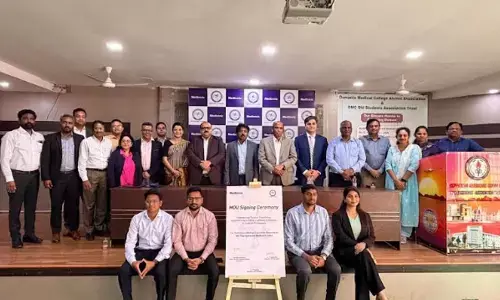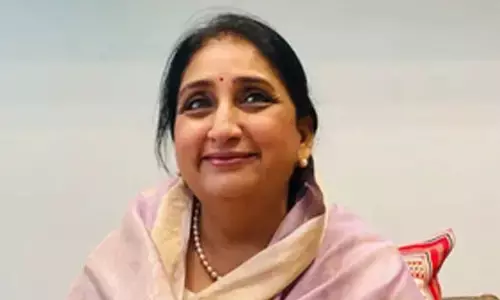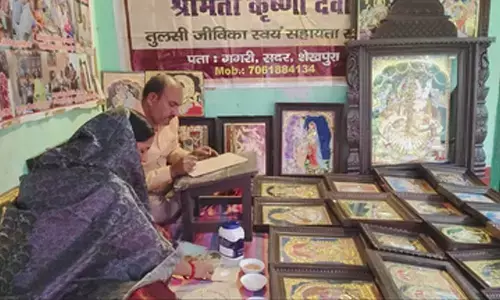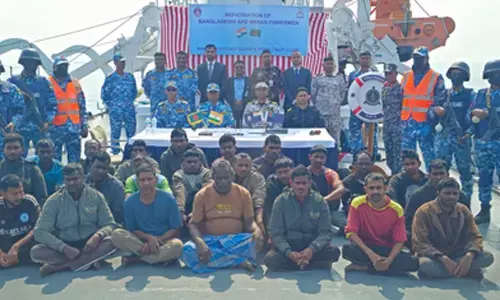Geriatric care still an oasis for elders in India
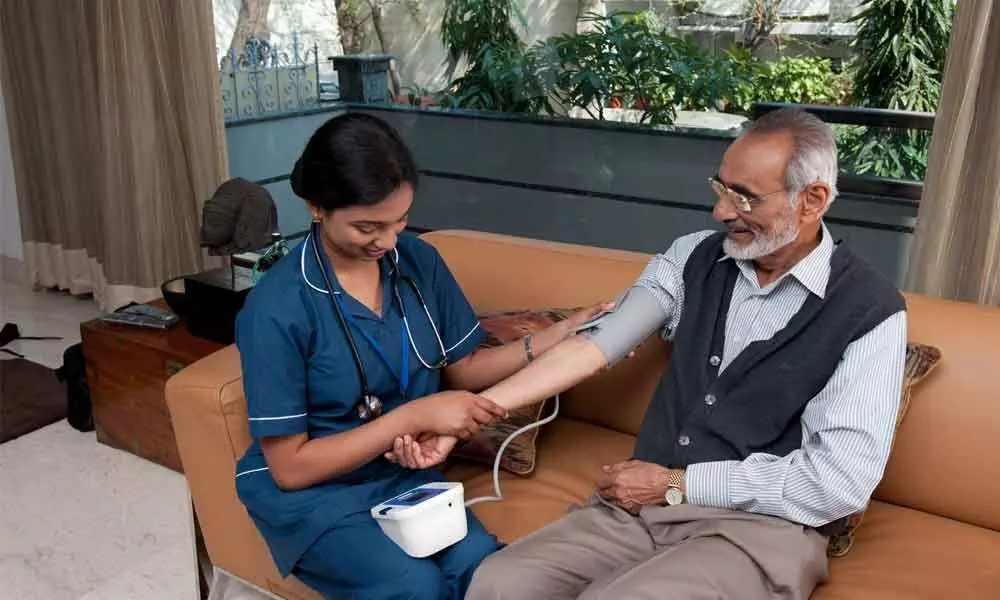
Seventy-year-old -Anand Kumar, with severe respiratory problem, was brought out of the ICU abruptly to accommodate a 40-year-old person with cardiac arrest as the ICU had just six beds and someone had to make way.
Seventy-year-old -Anand Kumar, with severe respiratory problem, was brought out of the ICU abruptly to accommodate a 40-year-old person with cardiac arrest as the ICU had just six beds and someone had to make way.
Sixty-five-year old Shamala with a broken arm had to wait in queue for medical care more than one hour, and just as her number came, a 25-year-old accident victim was wheeled into the doctor's chamber.
This has been a common picture in hospitals across the country. Senior citizens who comprise 120 million, almost nine percent of the country's total population, do not get importance in availing normal healthcare facilities.
India is a predominantly 'young' country with almost 65 percent of its population below 35 years.
"Most of the times a young person is seen as the breadwinner of the family and his/her residual life is assumed to be more and therefore he/she gets priority over the old when it comes to medical care," says Dr V Kanagasabai, former Director of Medical Education, Tamil Nadu. Though it is unfortunate, it is true most of the times, he says.
According to a study "Geriatric Healthcare in India – Unmet Needs and the Way Forward", conducted in 2017 and published in the Archives of Medicine and Health Sciences, India has 112 million elderly people with multiple physical, social psychological, and economic problems with unmet needs in all domains of health.
According to Prabha Adhikari, who conducted the study, routine healthcare clinics cannot handle the burden of the geriatric population, address their multi-morbidity and several other age-related problems.
There is a need for specialised hospitals and clinics for elders. However, to have more facilities dedicated to senior citizens there is a need for a rapid training of healthcare professionals of various disciplines in geriatric care.
Effort to address this issue did begin. Madras Medical College Hospital started a separate ward for geriatric patients in 1991, and to augment trained doctors in the field, Madras Medical College (MMC), Chennai, started a three-year post-graduate course in Geriatrics in 1996.
"We were the first medical college in the whole of Asia to start a specialised course in Geriatrics and have groomed around 30 specialists so far," Dr Kanagasabai said.
The teaching hospital has a Geriatric ICU with six beds exclusively for senior citizens.
In 2013, the World Health Organisation (WHO) had recognised MMC, Chennai, as an institute of excellence in Geriatric training and has been deputing candidates from other countries for postgraduate studies, paying Rs 95,000 as scholarship amount.
However, the scenario is not as bright in the rest of the country. "Geriatrics is a new field and it is not very popular.
There may be two or three institutions across the country offering the specialisation," says Dr K Narahari Rao, former principal of Gandhi Medical College, Hyderabad.
Even at the undergraduate level, there is not even a passing reference to the subject, he said.
"We need not give up as yet," Dr Kanagasabai, who was also the Dean at MMC, Chennai, said. According to him the syllabus for medical education is being revamped this academic year, and chapter on Geriatrics may find a place in undergraduate course.
"Once specialists are trained, there is every possibility that specialised hospitals and medical care facilities for senior citizens would come up," Dr S Leeladhar, Bhagvathi Devi Orthopaedic Hospital, Hyderabad, said.
An orthopaedic surgeon, whose patients mostly comprise of senior citizens suffering from fall or dislocation, Dr Leeladhar sees a need and a bright future for such hospitals.
But Dr Kanagasabai is a little skeptical, not because there is no need or viability of such a set up. He says, there could be some resistance from the medical community as was the case with Paediatrics, when it branched out as a separate speciality during early 1970s.
Also, there may not be many graduate doctors, opting for a PG course in Geriatrics, as other specialisations like cardiology, surgery etc. are much more popular in terms of their potential to earn.
However, he says there is a way out. The government should ensure that medical colleges conduct short-term refresher courses in Geriatrics to general practitioners, doctors in the Primary Health Centres, taluka-level and district headquarter hospitals to orient them to understand the special health concerns of elder citizens and to offer suitable medical care.
Once this kind of an awareness is created among the primary level medical practitioners, the speciality develops, and more numbers of specialists are created.
The government on its part has recognised the need for specialised care of the senior citizens. The Health Ministry has created geriatric centres and geriatric clinics in most of the States; however, these centres may not serve functionally and cognitively impaired elderly.
There is great need for mobile units, day-care centres and hospices, and need for training of personnel in home nursing.
Also, a National Institute of Ageing is being set up in Chennai to cater to this need. The Rs 150-crore Centrally assisted project will function under Madras Medical College.
The 200-beded hospital will have several specialities linked to Geriatric care and provisions to train doctors besides facilitating research on ageing.
By 2050, when India's population of people above 60 years reaches the 300 million mark, the country will probably will have more of specialised referral hospitals, day hospitals and clinics for the senior citizens.












